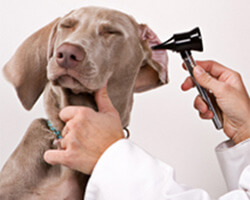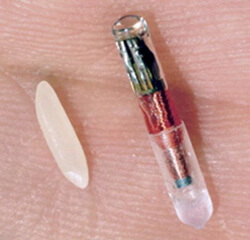Veterinary Health Care

Vaccinations for Dogs and Cats
Vaccinating your animal is important in preventing many fatal diseases. There are a number of vaccines available, which vaccination protocol is given depends on the lifestyle of your pet.
We encourage you to contact us so that a veterinarian may discuss a suitable vaccination regime for your pet.
The Vaccinations for dogs include:
- Parvovirus which causes fatal diarrhoea and fatal bone marrow suppression.
- Distemper Virus which causes fatal neurological and respiratory disease.
- Hepatitis Virus which causes hepatitis, inflammation of the liver.
- Kennel Cough which has 2 components including Bordetella and Parainfluenza – the vaccine aims to reduce clinical disease but does not provide absolute protection.
Vaccinations for cats include:
- Parvovirus which causes Feline Enteritis
- Herpesvirus which is part of the Cat-Flu complex.
- Calicivirus which is also part of the Cat-Flu complex.
- Feline Leukaemia Virus (FeLV).
- Feline Immunodeficiency Virus (FIV)
Parasite control – Intestinal Worms, Heartworm and Flea Control
Intestinal Worm control
To ensure your pet is clear of intestinal worms such as round worms, hook worm, whip worms and tape worms – we recommends a good quality all wormer be administered every 3 months orally to adult dogs and cats, puppies and kittens are give worming medication more frequently.
Heartworm Control
Heartworm is a disease that is spread by mosquitoes feeding on infected dog’s blood. The Heartworms can be up to 30 cm long and reside inside the heart chambers and larger blood vessels around the heart. They can be present for a period of time doing damage to these delicate structures before clinical signs of heart disease become apparent. Treatment is available to remove the infected Heartworm.
Prevention of Heartworm involves administering a Heartworm preventative tablet, chewable or spot on preparation once monthly. A new once yearly injection has been released recently that prevents Heartworm infection for one year. Your dog should be tested by a blood test to ensure that it is free of Heartworm before preventative medications are commenced.
Flea control
Fleas are small, brown or black wingless insects with flattened bodies. These blood sucking insects cause considerable irritation and distress to infested pets. Severe infestation may lead to anaemia from blood loss. Fleas spread the common tapeworm in dogs and cats. Flea bites also cause skin allergies and rashes on both pets and people. 80-90% of the life cycle of the flea is spent in the environment away from the pet. This means that you may not be able to detect an infestation if you are just looking in your pets’ coat. Flea prevention is very easy. An easy spot on application can be applied to the back of the neck once a month to control fleas. Contact our clinic to find out about the products that are on the market for flea control and which is the best for you to use.

Microchipping
Dr Michael Elek Authorized Microchip Implanter : Registration number A 1340
A microchip is the size of a grain of rice, which is injected under the pet’s skin. The procedure is much the same as for a vaccination although the needle is slightly larger. It is not particularly painful, although some pets may vocalise with the needle being inserted, just as some do when vaccinated. There is no ongoing discomfort once the chip is in place. It carries a code unique to the pet owner and pet. This code is placed onto a national computer database and appears on a certificate of identification given to the owner. Micro-chipping is the most effective form of permanent identification. A microchip scanner is passed over the pet to reveal the unique code. The operator can read the code on the scanner display and then refer to the national computer database to identify the name, address and phone number of the owner.
